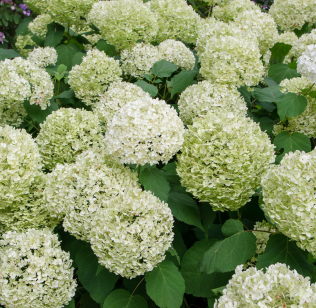Plants offer a multitude of benefits and are cultivated for different reasons. For instance, some species are grown as food while others serve as plants for health.
If you are looking for options that promote health and wellness, this article is a must-read. Plants have been at the centre of health and wellness for many years. From their ability to enhance indoor air quality to their medicinal properties, plants have one of the most important roles in ensuring we live a healthier lifestyle.
In this post, we will discuss a few plants for health, focusing on medicinal and indoor options that improve the air in our living areas.
Plants for health: Medicinal plants

The use of plants for their medicinal properties is ingrained in our history as humans. Ancient civilisations, such as the Chinese and Greeks, discovered some of the plants we have used for centuries to treat a wide range of ailments.
Each of these medicinal plants possesses unique compounds that provide a wide range of therapeutic benefits. For instance, cloves are known for their antibacterial properties, while garlic is good as an anti-inflammatory remedy. Other categories include antimicrobial, analgesic and antioxidant plants.
Some common examples of medicinal plants you can grow in your garden include:
- Ginger - Commonly used as a remedy for nausea, but can also help with digestive issues.
- Aloe vera - Offers amazing skin-soothing benefits and you can apply it directly to heal minor cuts and burns.
- Turmeric - Possesses anti-inflammatory properties and can help neutralise free radicals as well as shield body cells from damage.
- Ginseng - Also known as man root, this is a common root crop for many gardening enthusiasts. The plant is an adaptogen that helps the body cope with stress, lowering blood sugar and promoting relaxation.
There are plenty of ways to incorporate medicinal plants into your health practices. For instance, you can drink them in herbal teas or consume them as capsules, essential oils or extracts. Regardless of your chosen method, it is essential to consult with your doctor or herbalist to ensure you are using these plants for health properly.
Plants for health: Indoor plants for air quality

We spend most of our time indoors. Therefore, indoor air quality is vital to our overall well-being. There are plenty of methods you can use to create a clean and fresh indoor environment, including changing air filters and installing humidifiers. But have you tried planting some indoor plants?
Indoor plants act as natural air purifiers, filtering and absorbing harmful pollutants from the air. Our indoor air contains various toxins, including benzene, trichloroethylene and formaldehyde. By having plants in your office and home spaces, you can eliminate these pollutants without the need for expensive air-conditioning devices. Some of the most common indoor plants for health include:
- Peace lily - Often given as a gift for new homeowners. Its large white blooms help brighten up any space. It is also great at filtering indoor air (by absorbing mould spores) and enhancing humidity levels.
- Spider plant - As with the peace lily, a spider plant helps remove benzene and other toxins from the air. It is also used as a vegetable in various rural areas in East and Southern Africa.
- Boston fern - Filters and absorbs formaldehyde from the air. It also acts as a natural humidifier.
Besides removing harmful toxins from the air, having these indoor plants can help increase oxygen levels. As we all know, plants photosynthesise, which converts carbon dioxide into oxygen. This process helps increase the oxygen levels in our indoor spaces.
Incorporating both medicinal and air-quality plants is a great way to promote health and happiness in our lives. However, it is essential to choose plants that suit your needs and availability. Always identify the specific needs of each plant and ensure you care for them wisely.





